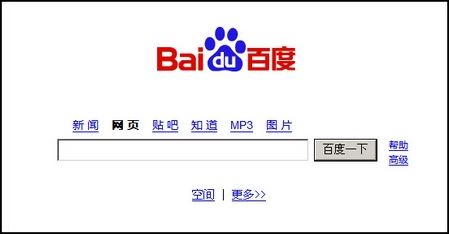Just like every region in the world, China users have very specific online browsing habits. Ignoring these idiosyncrasies be very costly, particularly if you are running an online store. Adapting your company’s strategy to your target market’s behavior is imperative to succeeded online. So, what do you need to know to market to the Chinese market? Let’s discuss the basics.
In China Baidu is the dominant search engine. It is considerably different from Google, but just what are these differences?
Younger Demographic
The average age for someone using search engines in China is 25, 10 years younger than the West’s 35 average (for purposes of this post, the West refers to the US and UK). This younger demographic has an ever-increasing enthusiasm for mobile technology, particularly in areas where it may be difficult to access laptops and PCs, and this has led to change in search in tier two and three cities.

Screenshot taken 01/13/14 of baidu.com
Patient Searching
Western searchers on average spend between 8 to 10 seconds on Google before the first click. However, the browsing time is much longer for Chinese searchers on Baidu – at 55 seconds, according to Enquiro’s eye-tracking study. This is due to the different way in which Chinese and Western searchers focus on the results page.
For example, Western searchers focus on the upper left part of the page – basically where the top results are. While in China, searchers have a much wider focus, scanning more information and ultimately taking more time.
More Susceptible to Recommendations & Paid Ads
One of the key differences between internet users in China and those in Western markets is that Chinese users are typically more susceptible to recommendations and suggestions from trusted online sources. In short, as a trusted online provider, Baidu’s search results are perceived to be more appropriate – and the company has developed further content services as a result of this.
Additionally, while Westerners have a tendency to be suspicious about the honesty/relevancy of anything that is paid for, the reverse is true in China – they believe that if brands are willing to pay for their presence on the first page of a search engine, they must have something worth checking out.
Mobile
Smartphone usage has increased rapidly in China and mobile search traffic currently accounts for close to half of the total web search traffic on Baidu. This is due, in part, to the increasing availability and declining costs of technology.
According to data released by CNNIC in July 2013, 79% of China’s internet users access the web via smartphones and other mobile devices (increasing by around 11% from the end of 2012). In line with this, mobile search has seen a strong upwards trajectory during the last 12-18 months and is projected to continue to do so. Therefore, it’s unsurprising that mobile is one of the key factors in Baidu’s growth strategy.
Conclusion & Key Takeaways
China’s younger demographic, with its ever-increasing enthusiasm for mobile technology, particularly in areas where it may be difficult to access laptops and PCs, must be taken into account when optimizing websites for Baidu. Chinese users have a hunger for information, especially about branded goods and aspirational lifestyles, meaning they tend to browse all the search results, rather than pinpointing specific sites via keyword searches. The key takeaways to bear in mind when marketing for Baidu are:
- China’s internet audience has its own browsing habits
- Baidu is the dominant search engine in China
- The average age of someone using search engines in China is 25 versus 35 in the West
- Chinese searchers spend an average of 55 seconds on Baidu browsing results. This is much longer than Western searchers spend on Google (8-10 seconds)
- Chinese searchers tend to be more susceptible to recommendations and paid ads
- Mobile usage will continue to grow in China






